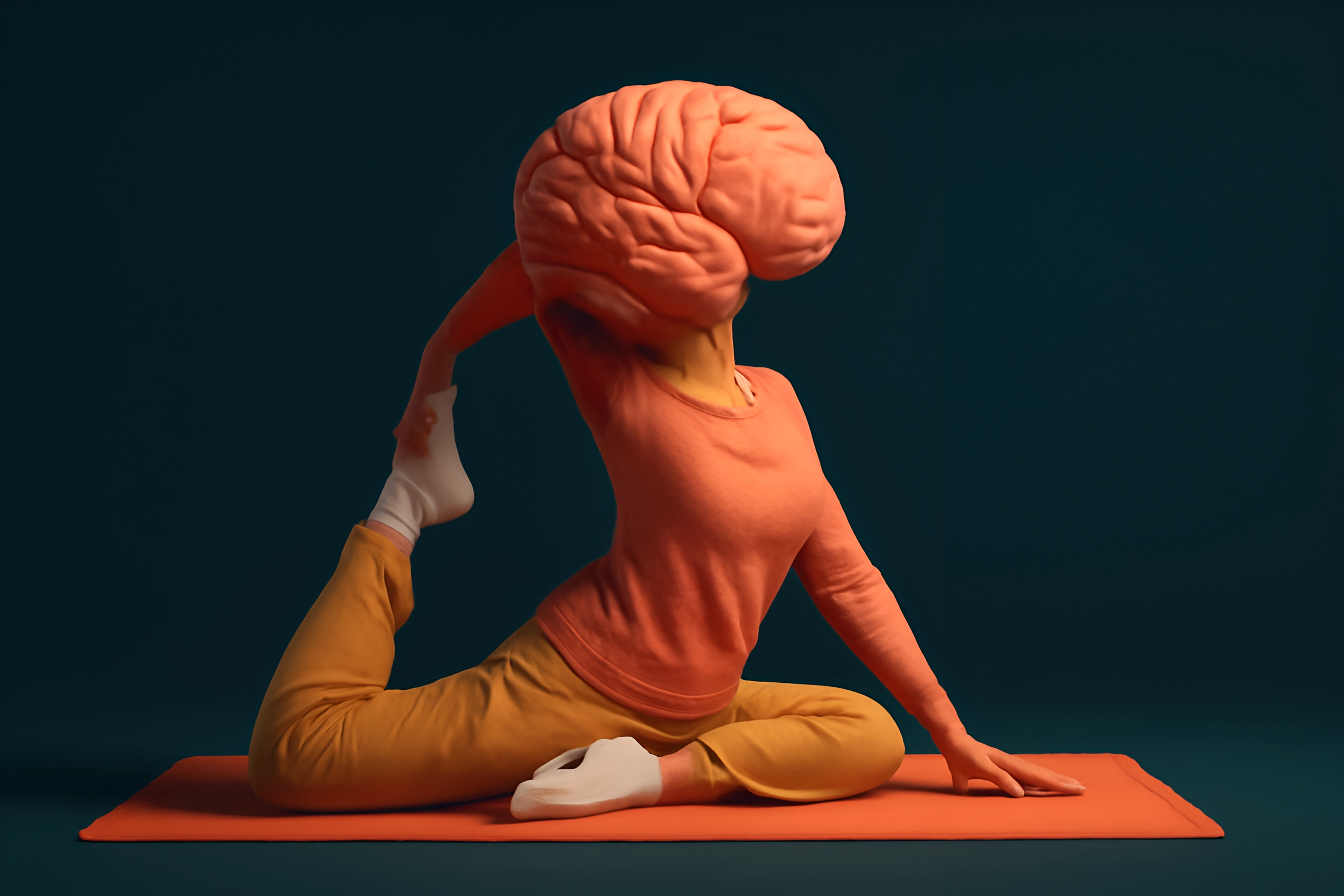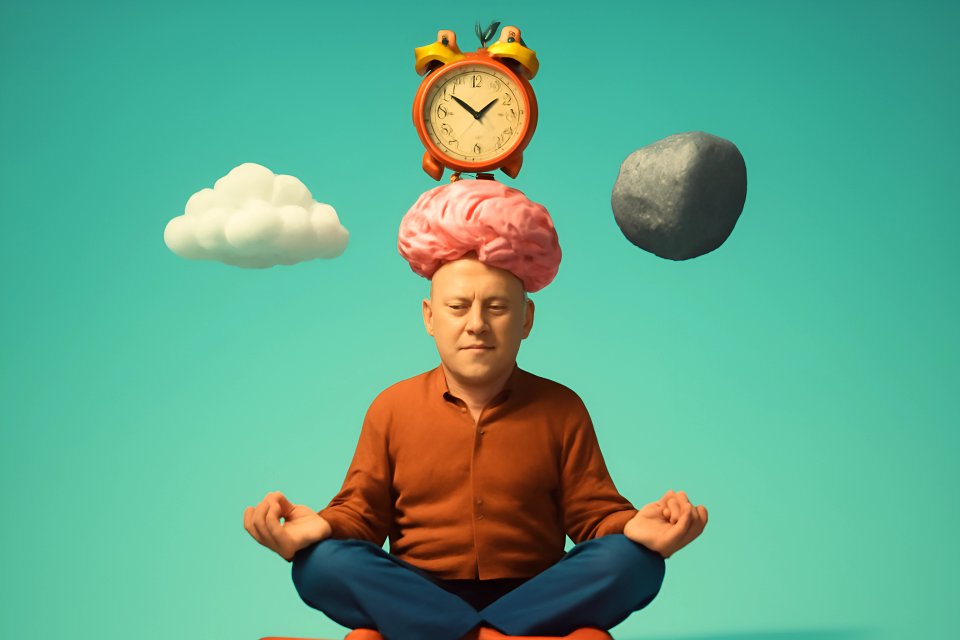
Does this sound familiar? You fall asleep easily, only to find yourself wide awake at 2 a.m., your mind racing with tomorrow's to-do list. Or perhaps you toss and turn for hours, feeling more exhausted when the alarm clock rings than when you first lay down. You are not alone, and you are not broken. This frustrating battle for a good night's sleep is a reality for millions of people over 50.
The truth is, our bodies change. Natural shifts in our circadian rhythms, a decrease in the sleep hormone melatonin, and a lifetime of accumulated stress or physical discomfort can conspire to rob us of the rest we desperately need. The National Sleep Foundation confirms that aging naturally alters sleep architecture, leading to less deep sleep and more frequent awakenings. But this is not a life sentence of fatigue.
This is your guide to fighting back. Forget generic tips you've heard a thousand times. This is a practical, actionable plan for creating a personalized bedtime routine for deep sleep over 50. We will give you the science-backed strategies to calm your mind, relax your body, and finally reclaim your right to the restorative, energizing sleep you deserve.
Why Sleep Changes as We Age (And What You Can Do About It)
It’s a frustrating truth: the easy, effortless sleep of our youth often becomes a distant memory. This isn't a personal failing; it's a biological reality. Understanding why this happens is the first step toward taking back control of your nights and, by extension, your days.
One of the primary culprits is a natural decline in melatonin, the hormone that signals to your body that it's time for sleep. As we age, our pineal gland simply produces less of it, making it harder to feel that gentle, drowsy pull toward slumber. At the same time, our internal clock, or circadian rhythm, can shift forward, a phenomenon known as "advanced sleep phase," which is why many older adults feel sleepy earlier in the evening and wake up before the sun rises.
But it’s not just about hormones and clocks. Life itself plays a major role. Decades of activity can lead to joint pain or discomfort that makes finding a comfortable position a nightly challenge. Furthermore, factors like medication side effects or increased life stress can create a state of mental and physical arousal that is the enemy of deep sleep. The key is to adopt a new mindset: this isn't a decline, but a new chapter that demands smarter, more intentional strategies. This is about learning to work with your body's new rhythm, not against it, a concept further explored in our guide to aligning your sleep cycle with your natural aging process.
Your Bedroom: The Foundation for Restorative Sleep
Before you can calm your mind, you must control your environment. Your bedroom should be a sanctuary dedicated to rest and rejuvenation, not a multi-purpose room filled with distractions. Think of it as the foundation upon which your entire sleep strategy is built; if it's cracked, nothing you build on top of it will be stable.
Embrace the Dark
Your brain is hardwired to associate darkness with sleep. Even small amounts of light from a streetlamp, a digital clock, or a charging phone can penetrate your eyelids and disrupt melatonin production. The National Council on Aging emphasizes that a dark environment is one of the most crucial sensible sleep tips for older adults. Invest in high-quality blackout curtains or wear a comfortable sleep mask to create a pitch-black cocoon. Cover or remove any electronics with glowing lights to send a clear, unambiguous signal to your brain: it is time to sleep.
Keep it Cool and Quiet
Have you ever noticed how you sleep more soundly in a cool room? There's a scientific reason for that. Your body's core temperature naturally drops to initiate sleep, and a cool room helps facilitate this process. Experts recommend an ideal sleep temperature of around 65°F (18°C). A fan can provide both a cooling effect and a source of consistent white noise, which helps drown out sudden, disruptive sounds that can pull you from a deep sleep cycle. If you're particularly sensitive to noise, consider using earplugs or a dedicated white noise machine.
The Bed is for Sleep Only
To sleep well, your brain needs to have a powerful, immediate association between your bed and sleep. When you work, eat, or watch television in bed, you weaken that connection. You are teaching your brain that the bed is a place for alertness and activity. As recommended by experts in evidence-based interventions for insomnia, you must reclaim your bed as a space reserved for sleep and intimacy only. If you can't fall asleep within 20 minutes, get out of bed, go to another dimly lit room, and do something calming until you feel sleepy again.
Make it a "No-Screen Zone"
This is the single most important environmental change you can make. The blue light emitted from phones, tablets, and TVs is particularly disruptive to your sleep cycle because it directly suppresses melatonin production. According to WebMD, you should turn off electronic devices at least an hour before bedtime to allow your brain to begin its natural sleep-preparation process. Make your bedroom a sanctuary from the endless scroll and the 24-hour news cycle.
The Ultimate 90-Minute Bedtime Routine for Deep Sleep Over 50
Think of the next 90 minutes before you get into bed as a sacred ritual. This isn't about adding more chores to your day; it's about creating a deliberate, calming transition from the stress of the day to the peace of the night. This is a flexible blueprint—your personal "power-down" sequence that signals to every cell in your body that it's time to rest, repair, and restore.
90 Minutes Before Bed: The Final Fuel-Up
Your digestive system needs to rest, too. Stop eating heavy meals at least two to three hours before bed to avoid issues like acid reflux that can disrupt sleep. If you feel hungry, opt for a light, sleep-friendly snack like a handful of almonds (which contain magnesium) or a small banana. This is also the perfect time to brew a warm, comforting cup of caffeine-free herbal tea, such as chamomile or valerian root, known for their calming properties.
60 Minutes Before Bed: Power Down & Disconnect
This step is non-negotiable. One hour before your head hits the pillow, all screens must go dark. This deliberate act of disconnecting is your first major step in quieting a racing mind. Instead of scrolling through social media or watching the news, engage in a calming, low-stimulation activity. Pick up a physical book (not an e-reader), listen to soothing music or an interesting podcast, or work on a jigsaw puzzle. The goal is to engage your mind gently without over-stimulating it.
30 Minutes Before Bed: Active Relaxation
Now it's time to address the physical tension your body has accumulated throughout the day. Taking a warm bath or shower can work wonders; the subsequent drop in your body temperature after you get out mimics the natural temperature drop that initiates sleep. Follow this with some gentle movement. Focus on light stretches for your neck, shoulders, and lower back—areas that commonly hold stress. For specific movements that can ease discomfort, explore these effective recovery techniques for joint health. Finally, unload your mind by journaling. The NHS suggests that writing down your worries can help you process them so they don't keep you awake.
10 Minutes Before Bed: In-Bed Rituals
You are now in your cool, dark, quiet sanctuary. Once you are in bed, dedicate the final few minutes to calming your nervous system directly. Practice a simple deep breathing exercise, like the 4-7-8 method: inhale through your nose for 4 seconds, hold your breath for 7 seconds, and exhale slowly through your mouth for 8 seconds. Repeat this three to five times. You can also listen to a guided sleep meditation or a body scan meditation on a non-screen device to draw your attention away from racing thoughts and into the present moment. For more ideas, our guide to mindful evening routines can help optimize sleep quality.
Sleep Improvement for Over 50 Starts When You Wake Up
Achieving deep, restorative sleep isn't just about what you do in the 90 minutes before bed. It's a 24-hour commitment. The choices you make from the moment you wake up have a profound impact on the quality of your rest that night.
Seek the Sun
One of the most powerful ways to regulate your internal clock is to expose yourself to natural sunlight shortly after waking. Just 10-15 minutes of morning sun helps to suppress melatonin production and signal to your brain that the day has begun. This simple act helps to anchor your circadian rhythm, making it easier for your body to recognize when it's time to wind down in the evening. As HelpGuide.org notes, morning sunlight is a key factor in regulating sleep.
Move Your Body (Wisely)
Regular, moderate exercise is one of the most effective natural sleep tips for seniors. It helps reduce stress, improve mood, and regulate body temperature, all of which contribute to better sleep. However, the timing of your workout matters. Avoid intense or vigorous exercise within three hours of your bedtime, as the stimulating effects of adrenaline can interfere with your ability to fall asleep. A brisk morning walk, afternoon yoga, or swimming are all excellent choices. If you're looking for guidance, learn how to build a low-impact exercise routine over 50.
Watch Your Caffeine and Alcohol
That afternoon cup of coffee might seem harmless, but caffeine can stay in your system for up to eight hours, disrupting your ability to fall asleep. Try to limit your caffeine intake to the morning hours. Similarly, while a glass of wine might make you feel drowsy initially, alcohol is notorious for disrupting the second half of your sleep cycle, preventing you from reaching the deep, restorative stages of sleep.
Consistency is Key
Your body thrives on routine. As the Mayo Clinic advises, one of the 7 steps to better sleep is sticking to a consistent schedule. Going to bed and waking up at roughly the same time every day—even on weekends—is critical for reinforcing your body's natural sleep-wake cycle. This consistency is perhaps the most powerful daytime habit you can adopt for better nights.
Your Journey to Restful Nights Starts Now
You now have the blueprint. Reclaiming your sleep is not a mystery; it is a skill that can be learned and mastered through small, consistent actions. It begins with transforming your bedroom into a true sleep sanctuary, continues with the powerful 90-minute wind-down routine, and is supported by the smart, healthy habits you practice all day long.
This is not about achieving perfection overnight. It is about making progress, one restful night at a time. You have the power to end the cycle of fatigue and frustration. You have the tools to wake up feeling refreshed, clear-headed, and ready to embrace the day with the energy and vitality you deserve.
What's one new strategy from this list you're excited to try in your bedtime routine? Share your plans in the comments below! For more ways to build a foundation of wellness, check out our article on Mindful Daily Routines: Establishing Habits for Increased Energy in Your 50s and Beyond.

















